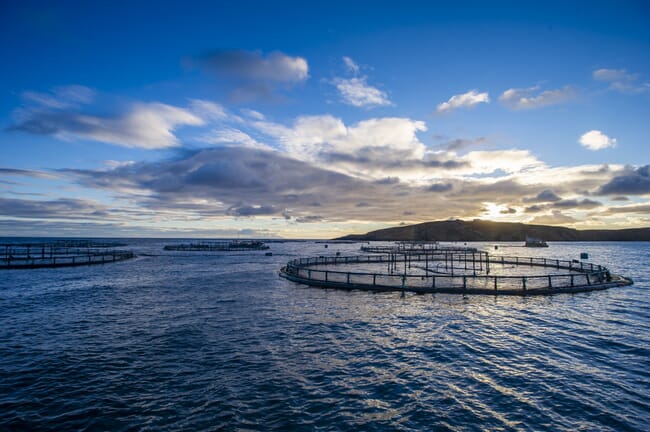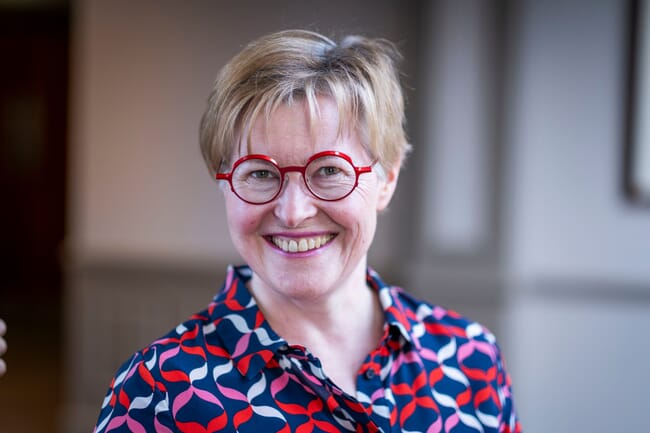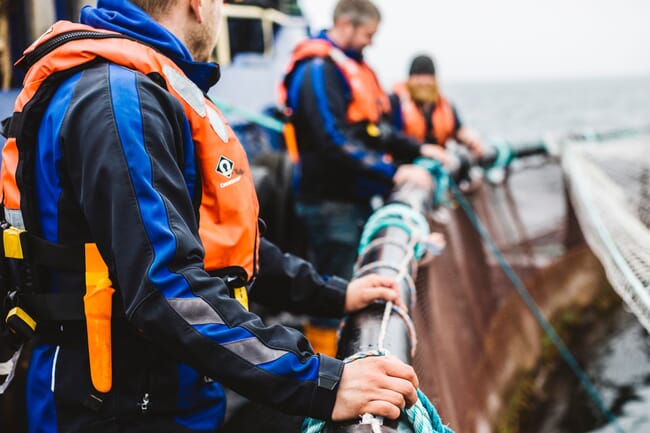
The SAIC board has endorsed a new framework for sustainable finfish farming in the UK © Mowi
As part of her recent master’s dissertation research at the University of St Andrews, SAIC CEO Heather Jones has created a new definition of a sustainable approach to UK finfish farming. This was developed following 35 hours of interviews with dozens of aquaculture experts and stakeholders, with a combined 828 years’ experience, drawing on deep knowledge of aquaculture at national to global level.
Among its key themes, the definition touches on the important role finfish farming plays in providing a high-quality source of protein as an integral part of the food system. The top issues to be addressed under the sustainability banner are environmental concerns – including minimising carbon emissions; prioritising animal health and welfare and the key contribution feed sustainability makes to helping achieve UK targets for net zero climate emissions.
The definition has been endorsed by the SAIC board, which includes respected individuals from across aquaculture and academia. It is already being adapted and adopted by a variety of organisations with an interest in the sector.
While the definition is initially specific to finfish production in the UK, SAIC said it would be interested in collaborating with the UK shellfish and seaweed sectors, along with global aquaculture sectors about developing the definition for their circumstances.
The development of a definition for sustainable finfish farming comes ahead of Marine Scotland publishing its “Vision for Scottish Aquaculture” in the next few months, which will outline the sector’s direction of travel for the years ahead.
Heather Jones, CEO of SAIC, said, “sustainability is a loose concept that a lot of people use, but it can mean very different things. Given its central role in the future of aquaculture, it was imperative to provide a considered, all-encompassing definition, with a high degree of consensus, of what it means for finfish farming in the UK. It was particularly important to ensure it was informed by insights from many of the people who best know the sector.
“With so much buy-in already, we hope this will become a foundation stone of our work to enhance the environmental and economic sustainability of the finfish sector. But it is not an answer in itself, so we want the Scottish Government, sector companies, academics and the wider stakeholder community to build on this starting point.

Jones expects that her sustainability definition will evolve and improve over time
“Ultimately, it is all about consumers having confidence in the quality of the food they eat – in this case, salmon and trout. Like any good definition, it should evolve and improve over time and there is potentially broader value from this research through the creation of definitions for other sectors within aquaculture, as well as globally. We would encourage anyone with an interest in doing this to get in touch.”
Malcolm Johnstone, aquaculture manager at RSPCA Assured, commented, “in my opinion, the definition includes all the relevant and wide-ranging factors that need to be considered. These include benefits to the consumer, local and regional considerations, ethics, outcomes, innovation, knowledge, scientific data, governance and, perhaps most importantly, fish health and welfare.”
A new definition of a sustainable approach to UK finfish farming
Jones's definition reads as follows:
“A sustainable approach to farming finfish in the UK operates over the foreseeable long term* to produce high-quality food that is safe to eat, accessible to consumers and provides omega-3 micronutrients essential for human life. The sector is valued for the wide-ranging and shared national benefits it provides in terms of societal health, fair employment, financial stability and prosperity for individuals, businesses and communities; and for its adoption of new technologies to minimise negative environmental impacts.

“Prioritising animal health and welfare, it converts ethically and sustainably sourced inputs into beneficial outputs, whilst minimising waste across the global supply chain. It pursues net-zero greenhouse gas emissions in producing food. It uses resources efficiently and effectively, without causing cumulative irreversible harm over the long term. It monitors, manages, minimises and mitigates local environmental impacts within agreed and acceptable levels. It adapts to climate change and seeks to enhance biodiversity and ecosystems, either directly in the vicinity of farms, or indirectly via displacement, reducing impacts associated with alternative forms of food production.
“Management of the sector draws on the best available scientific data and ethical understandings to co-produce knowledge that commands the confidence of society. Governance systems are fair, coherent, participative, transparent and trusted. They respond to evolving consumer expectations around food sustainability and to the views of local communities and wider society, from which social licence to operate derives. Collaborative investment in innovation, technology and skills enables the sector to continuously improve, operating at the cutting edge of farming and regulatory practice, demonstrating global leadership in aquaculture.”
*Foreseeable long term defined as a human lifetime of 80-100 years”
